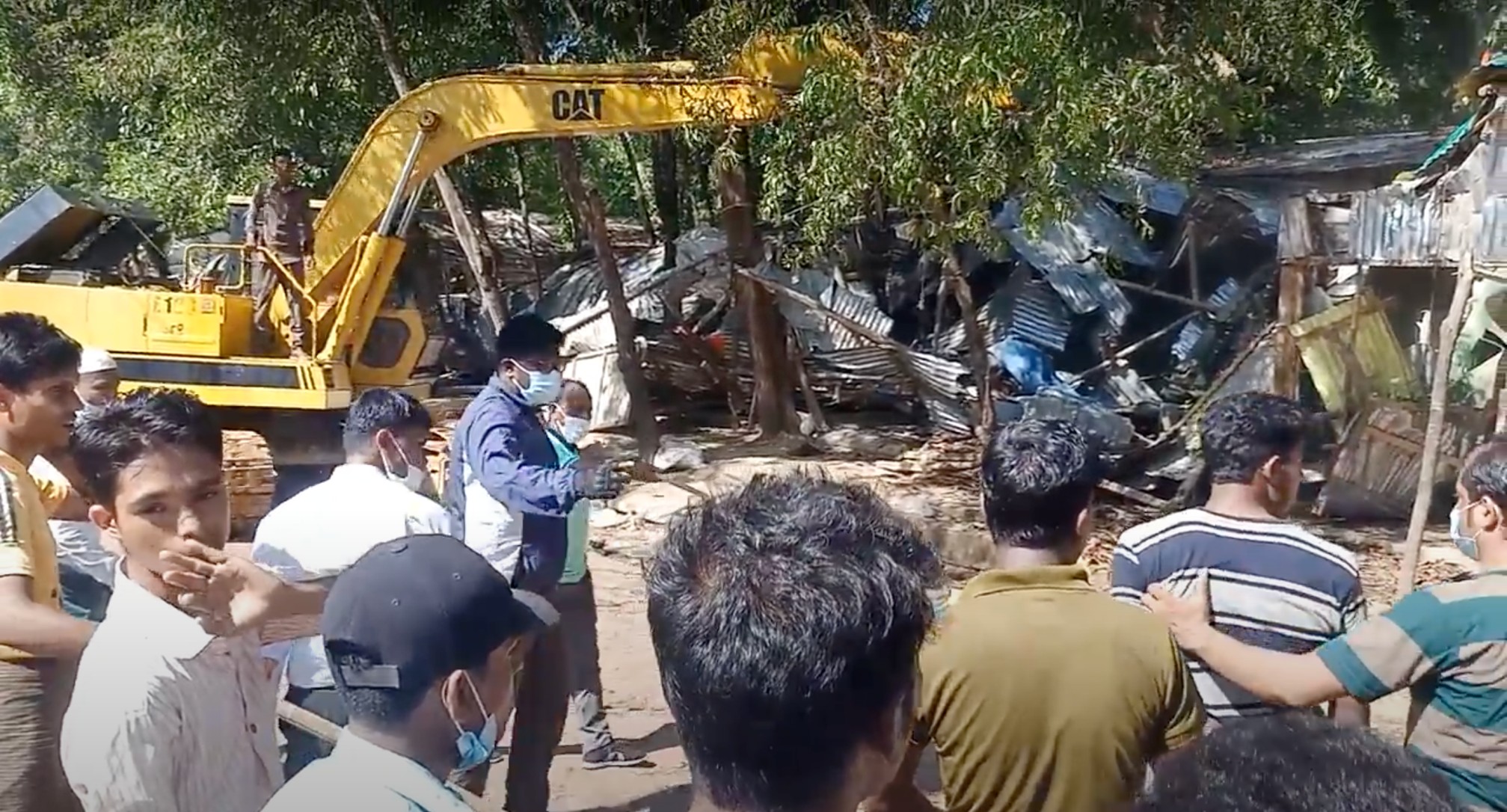Eight hundred shops were destroyed on Thursday morning at Kutupalong refugee camp’s only market by order of the Bangladesh government. Shop owners had only been given one day’s notice before bulldozers razed the area, a source of income for hundreds of Rohingya prohibited from working or seeking education in Bangladesh.
Maung Soe Ning, a photographer and resident of Kutupalong, says that this market is where the camp’s hundreds of thousands of refugees bought essential goods not provided by nonprofits; while staples such as cooking oil and rice are given to residents, they had relied on Kutupalong market for most other necessities.
Although the reason for the destruction is currently unknown, some cite the law prohibiting refugees from working to be a factor, whilst others fear it may have come as a result of competition with Bangladeshi-majority markets, to which Maung Soe Ning says there are plenty of connecting shuttles.
The day before, several majhis, or heads of 100 households, or block leaders, were called for a meeting with Camp-in-Charge official Mahabur Rahman, who told them the order to destroy the market came from the highest level. Other household leaders in the camp attempted to address the CiC today but were not given any further information. Some social media speculation suggests the local government was attempting to make room for more shelters.
“That morning, I saw some people taking their materials from their shops,” he said. “Then, whilst waiting around, I saw some Department of Labor [officials]. They are not allowing any Rohingya to work in that area.”
This is not the first time the market has been eyed for demolition; Maung Soe Ning says that most recently, on August 31, the UN intervened to stop the destruction. However, even INGOs must play by Bangladesh’s rules in order to remain in-country—the UN could not stave off the state’s plans forever.
Zaw Win, Human Rights Specialist with Fortify Rights, says his organization documented five incidents in 2020 and early 2021 in which Rohingya-run shops were destroyed by Bangladeshi authorities and their proxies.
“These callous acts strike at the very heart of the Rohingya refugee community and their pursuit of lives of dignity and self-sufficiency,” he said in a statement to DVB. “Having fled genocide and decades of discriminatory restrictions on their basic human rights in Myanmar, Rohingya refugees are now facing an increasingly restrictive environment in Bangladesh.”
The shops in Camps 1E and 1W provided tens of thousands with vital resources like clothes, shoes, food, meat, and fish. Some families were able to keep the material from their shops, but much was appropriated by the clean-up crew.
As many as 40 people are alleged to have been beaten by police for taking photos and protesting the destruction, including one majhi and Maung Soe Ning himself. While no one was arrested or seriously injured by the authorities, one ten-year-old boy was seriously injured trying to escape from them after collecting materials from his father’s stall, and is now in the care of a non-profit hospital.
“Even the government is trying to make us more vulnerable when we don’t have money, we don’t have anything, any opportunity that can make us money,” he said.



